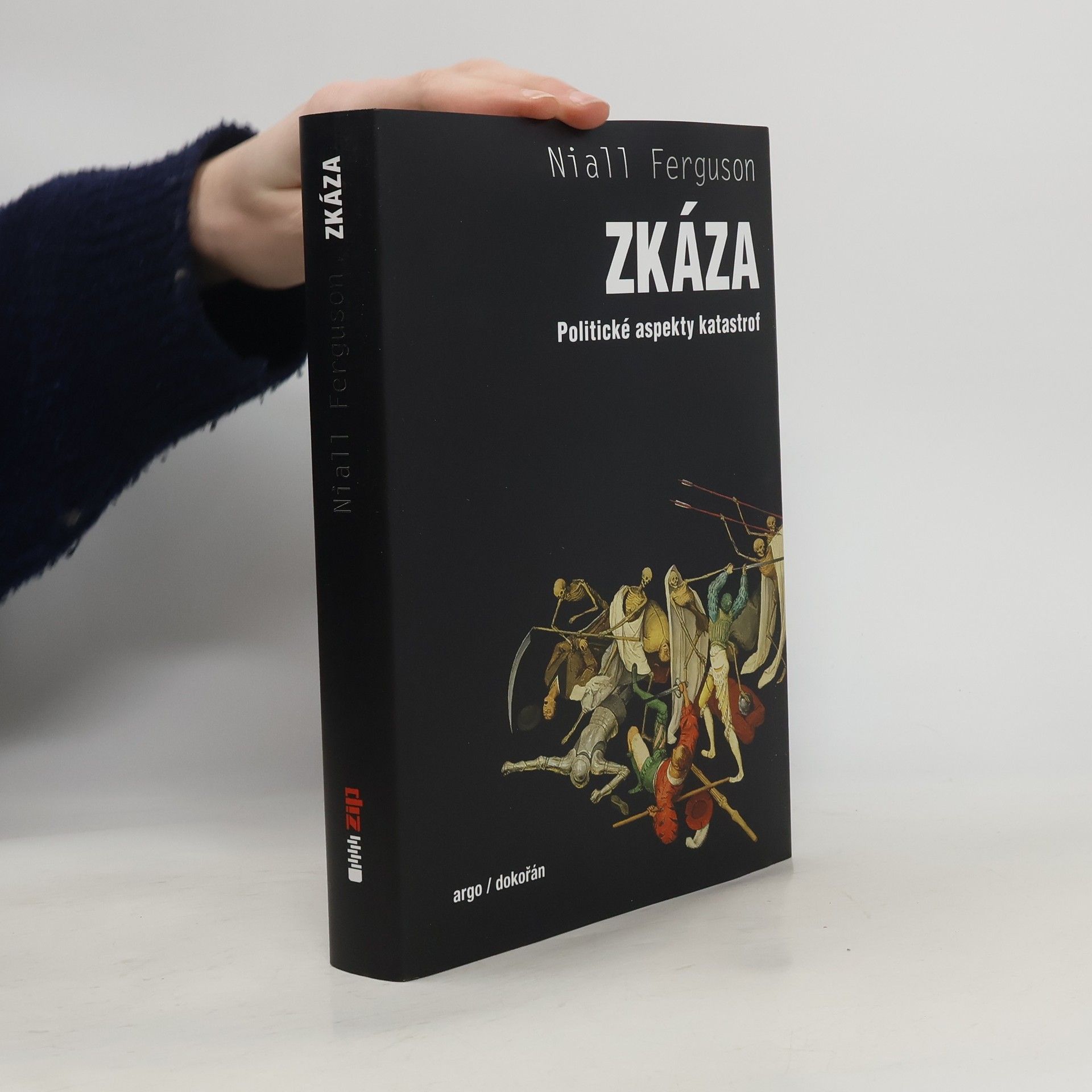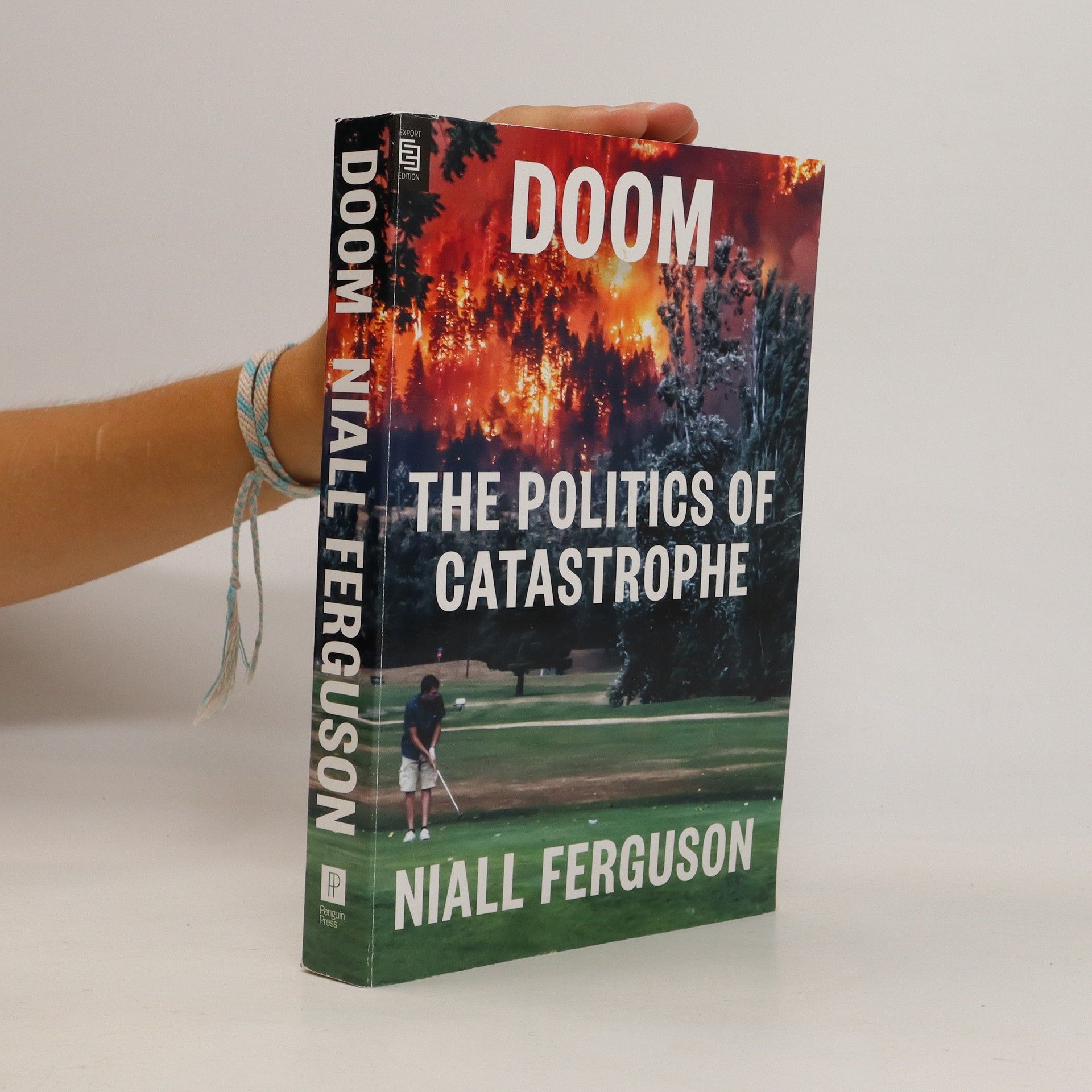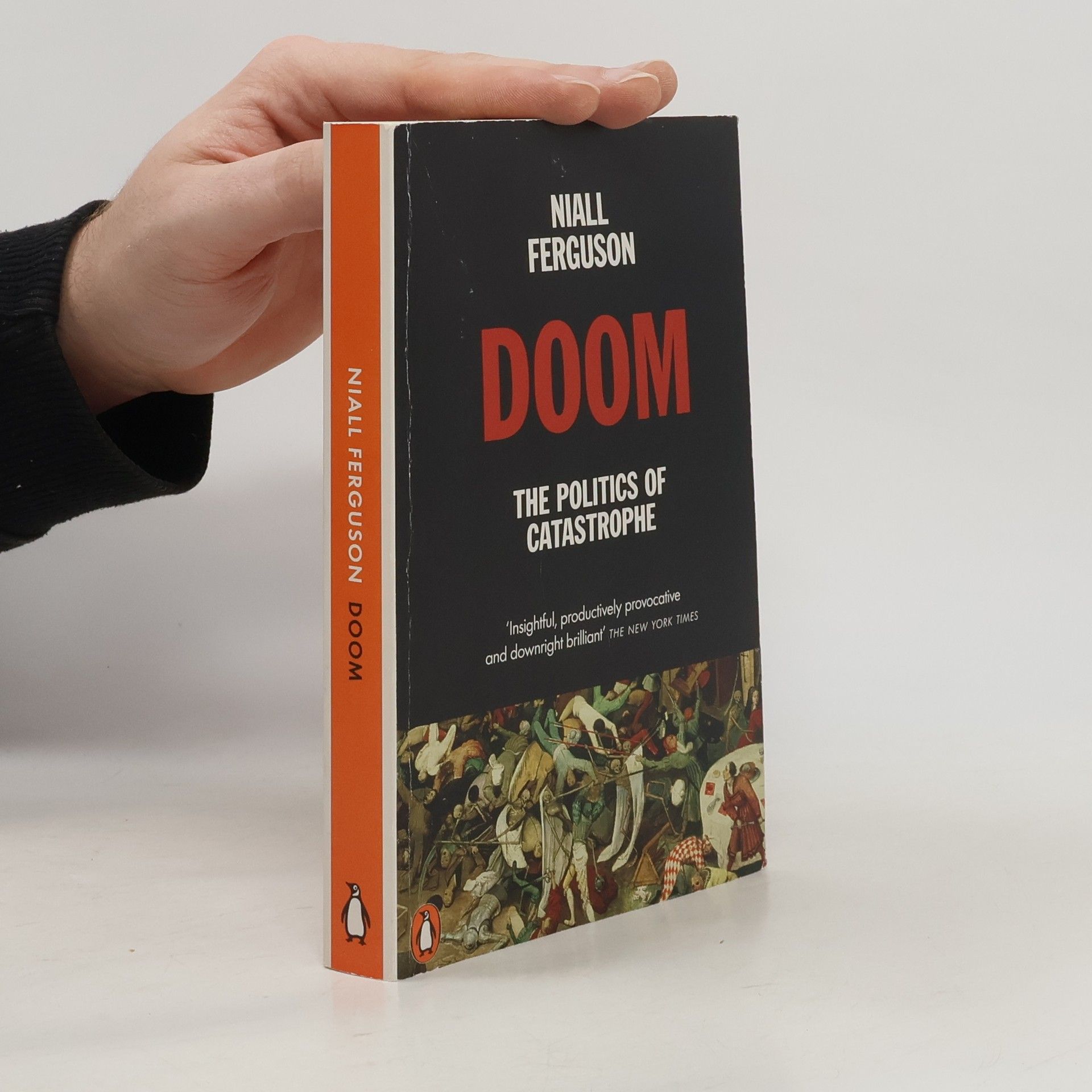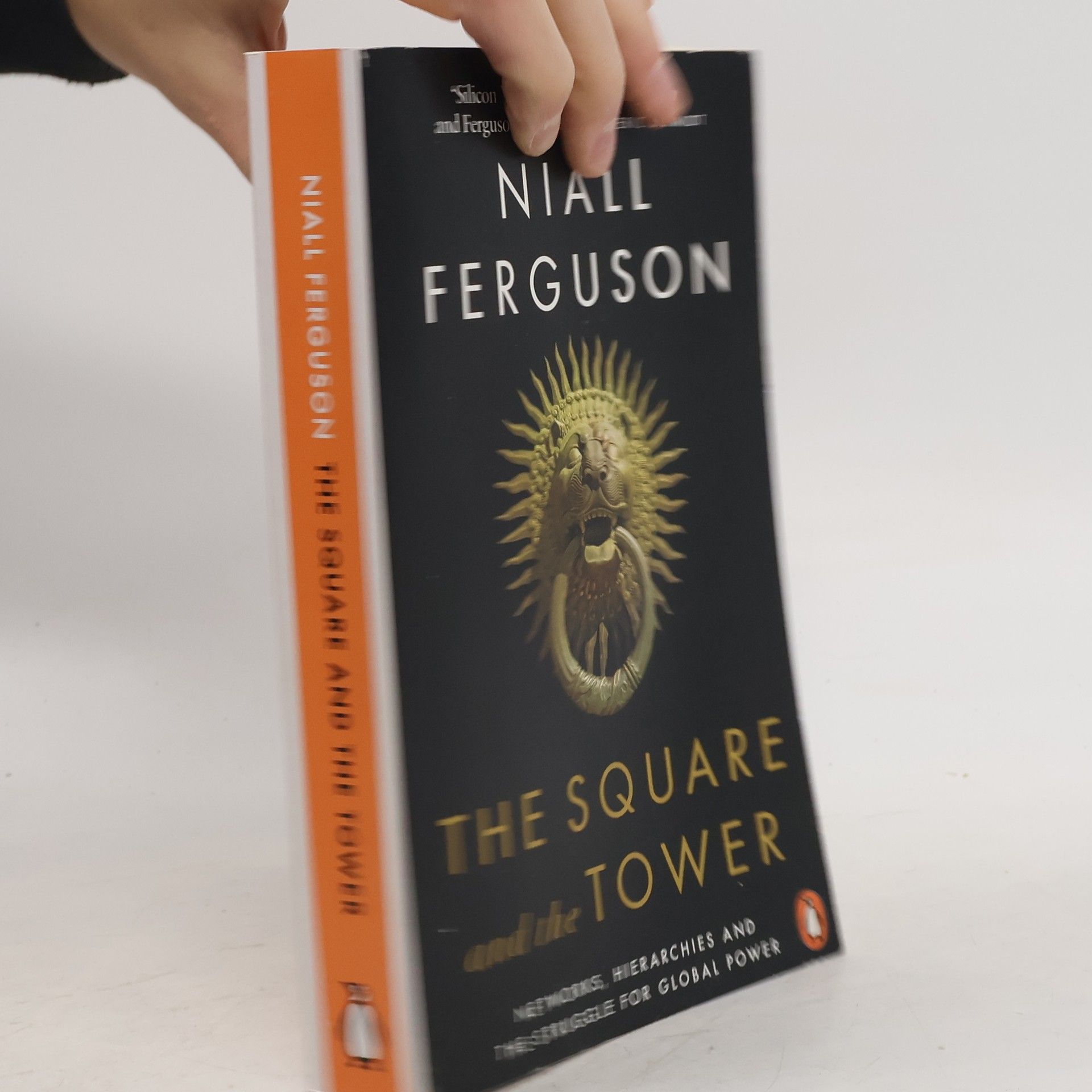Katastrofy jsou ze své podstaty těžko předvídatelné. Neexistuje žádný historický cyklus, který by nám pomohl předvídat příští pandemie, zemětřesení, požáry, finanční krize nebo války. Když však katastrofa udeří, měli bychom být připraveni lépe než Římané, když vybuchl Vesuv,nebo středověcí Italové, když udeřila černá smrt. Koneckonců máme na své straně vědu. Přesto byla v roce 2020 reakce mnoha vyspělých zemí na nový virus z Číny špatně zvládnutá. Proč? Proč se jen několik asijských zemí poučilo ze SARS a MERS? Autor tvrdí, že pandemie odhalila hlubší patologie – patologie, které byly patrné již v našich reakcích na dřívější katastrofy. Kniha čerpá z mnoha oborů, včetně ekonomie, kliodynamiky a vědy o sítích, a nabízí nejen historii, ale i obecnou teorii katastrof a ukazuje, proč se naše stále byrokratičtější a složitější systémy s nimi vyrovnávají čím dál hůře.
Niall Ferguson Book order (chronological)
Niall Ferguson is a distinguished historian whose work delves into global history, with a particular focus on economic and financial forces. He leverages his extensive knowledge to analyze contemporary world challenges and trends, connecting pivotal historical events to their long-term consequences. Ferguson's writing is characterized by its exploration of key moments and influential figures that have shaped the modern world. His narratives offer profound insights into the intricate relationships between power, finance, and societal evolution, providing readers with a fresh perspective on the present through the lens of the past.

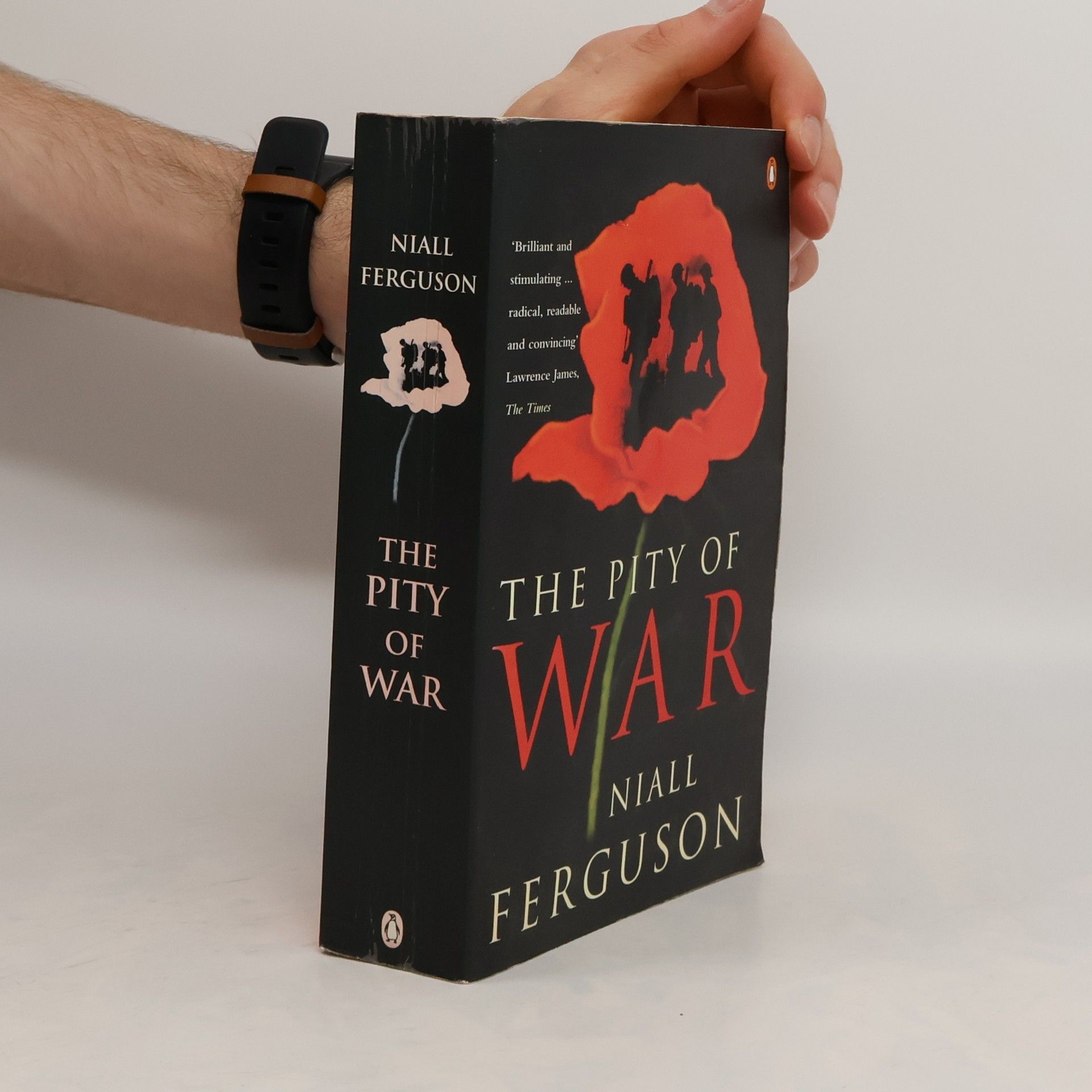
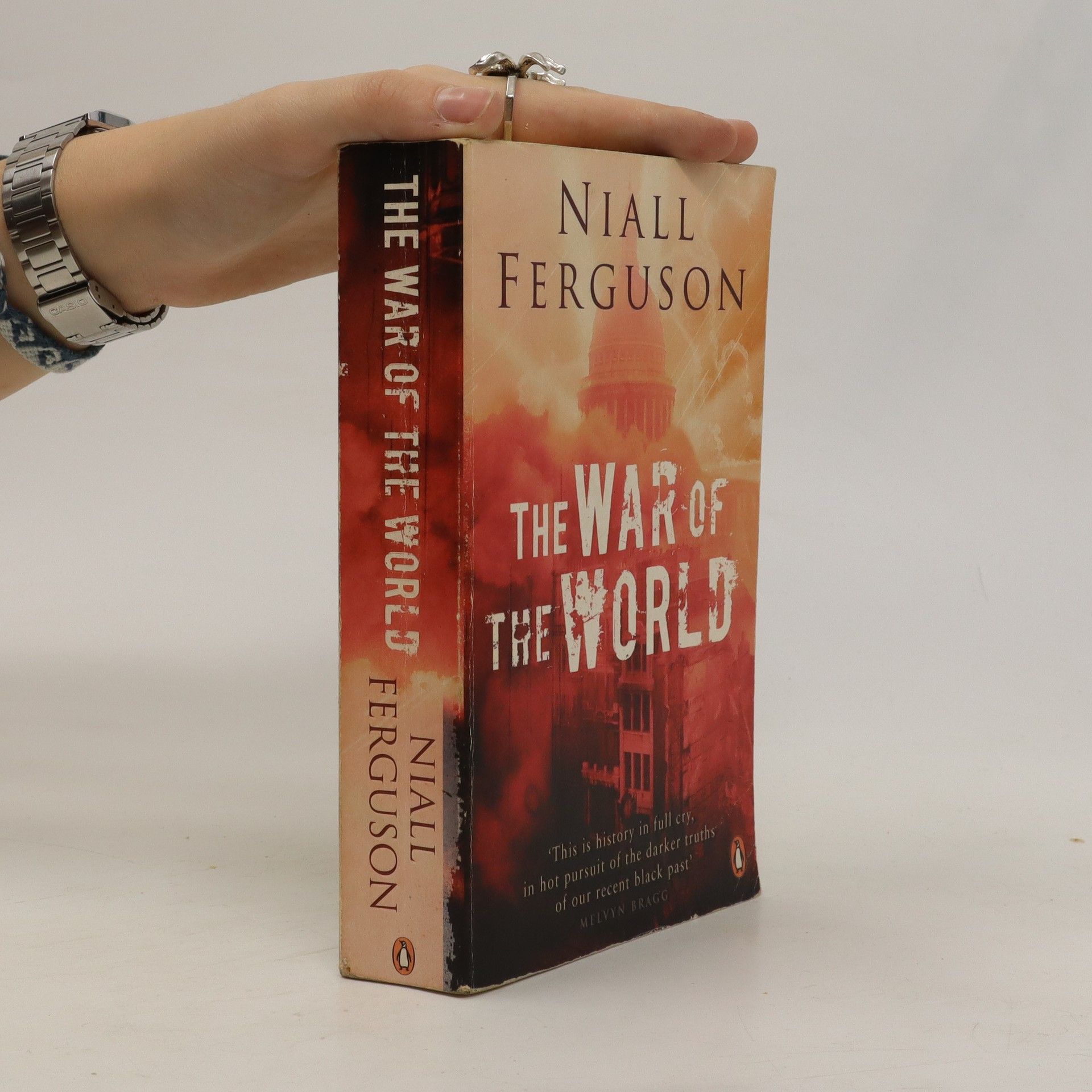
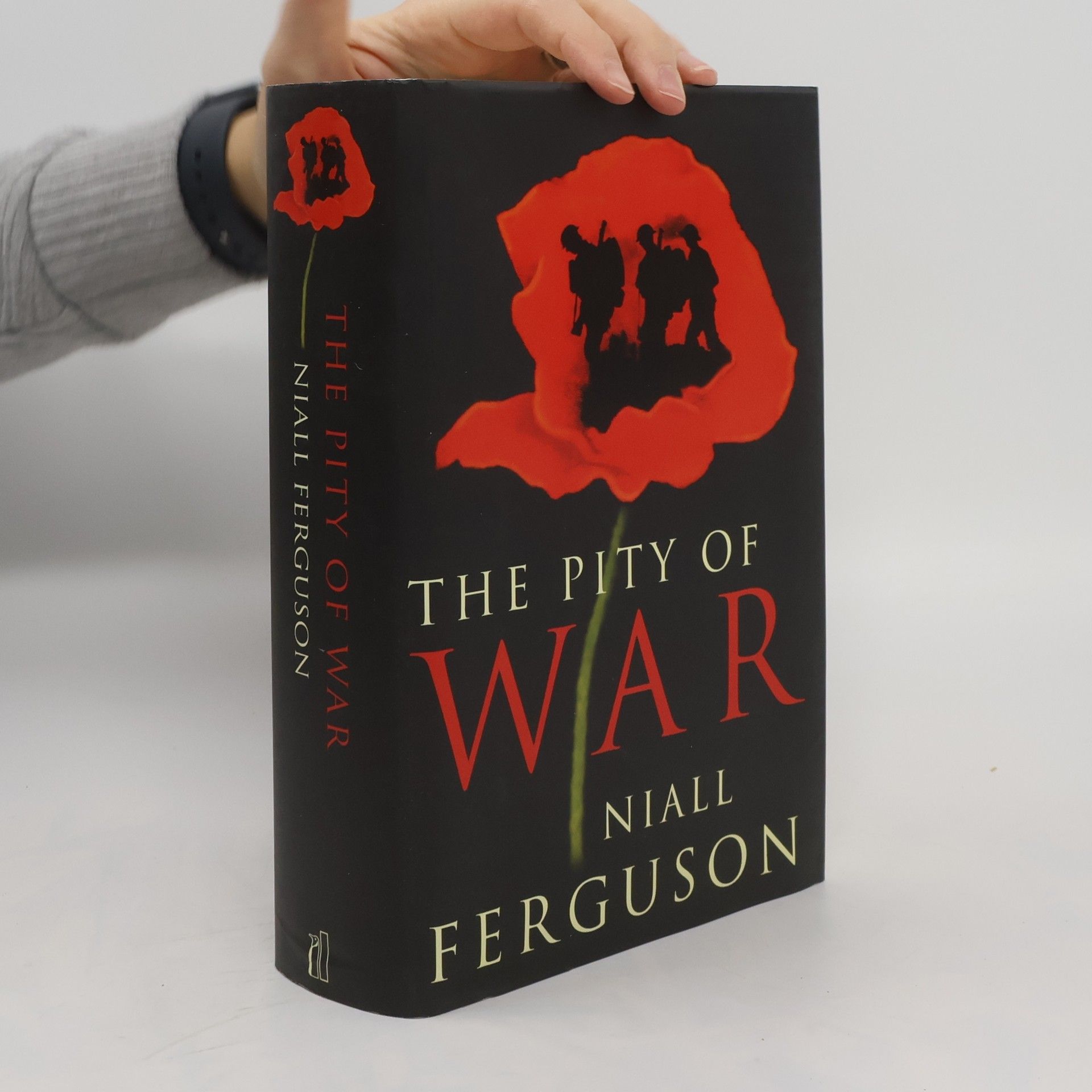
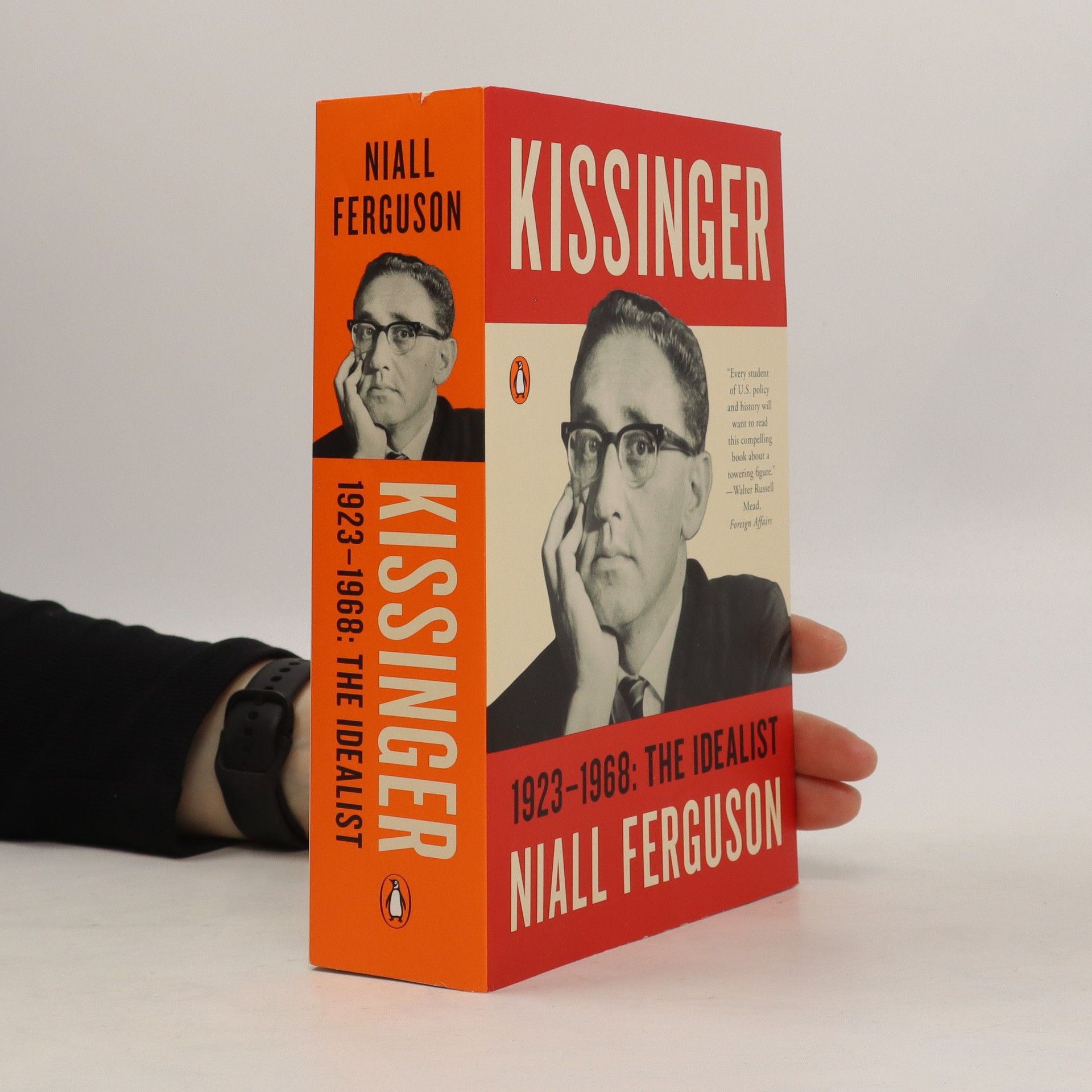

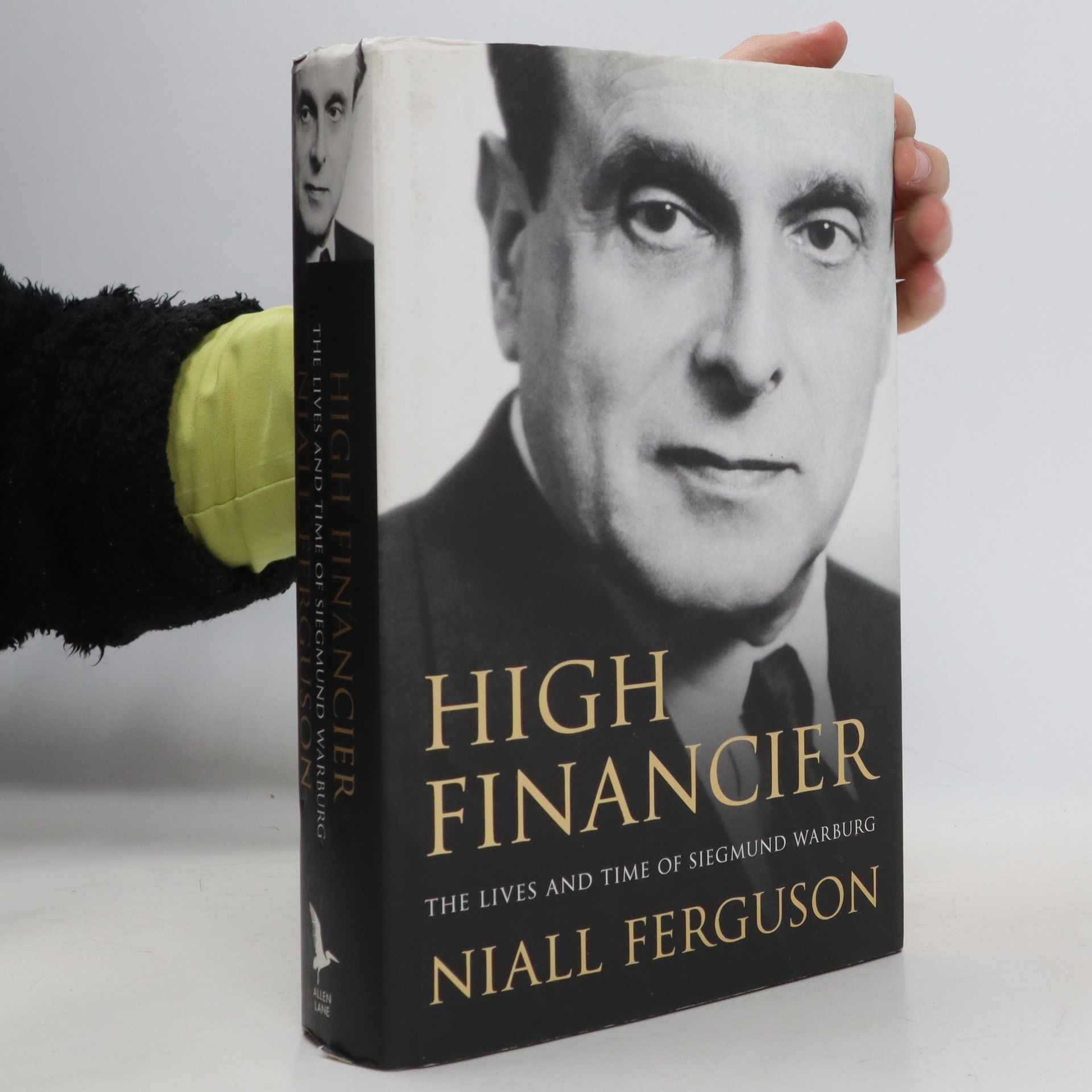
Kto pociąga za sznurki, z kim spiskuje i jak zyskuje władzę? Niall Ferguson, jeden z najsławniejszych historyków świata, profesor Uniwersytetów Harvarda, Oxfordu i Stanforda, demaskuje hierarchie i sieci, które wpływają na losy świata Dzięki wszechstronnemu i mistrzowsko napisanemu dziełu autora bestsellerowej Potęgi pieniądza dowiecie się, co łączy hiszpańskich konkwistadorów, bankierów z rodu Rothschildów, dawne żydowskie elity finansowe, inteligencję z czasów zimnej wojny, fundusze George’a Sorosa i współczesnych islamskich terrorystów. To książka, która jako pierwsza oddaje należne miejsce sieciom powiązań – powszechnej od stuleci i zyskującej na popularności dzięki nowym technologiom formie organizowania się, niedocenianej dotąd przez historyczne źródła.
Disasters are inherently unpredictable, and pandemics, like earthquakes and financial crises, do not follow historical patterns that could help us anticipate them. When disaster strikes, we should be better prepared than past societies, armed with scientific knowledge. However, many developed countries mishandled their responses to a new pathogen from China. While poor leadership, particularly among populist rulers, is often blamed, the COVID-19 crisis revealed deeper issues within the administrative state and economic elites, who had become shortsighted over time. The questions arise: why were warnings from experts ignored for so long, and why did only some nations learn from past outbreaks like SARS and MERS? The reliance on 'the science' often proved to be misguided. Drawing from history, economics, and network science, this work serves as a global analysis of the pandemic year. Niall Ferguson examines the underlying pathologies that have plagued societies, from imperial arrogance to bureaucratic inefficiency and online divisions. The COVID-19 pandemic highlighted a critical failure for many countries, emphasizing the need to learn from history to prevent a decline that could become irreversible.
Disasters are inherently unpredictable, and pandemics, like other crises, do not follow historical patterns that could help us anticipate them. When disasters occur, we should be better prepared than past societies, thanks to advancements in science. However, the responses of many developed nations to a new pathogen from China were severely mishandled. While poor leadership is an easy scapegoat, the COVID-19 pandemic revealed deeper issues within the administrative state and economic elites, who had become shortsighted over many years. Questions arise about why warnings were ignored and why only a few nations learned from previous outbreaks like SARS and MERS. The appeal to "the science" often devolved into mere wishful thinking. Drawing on history, economics, public health, and network science, this analysis serves as a global examination of the pandemic's impact. The author, Niall Ferguson, explores the pathologies that have caused significant harm, including imperial hubris and bureaucratic inefficiency. COVID-19 exposed failures that must prompt countries to learn from history to avoid the risk of irreversible decline.
Kto pociąga za sznurki, z kim spiskuje i jak zyskuje władzę? Niall Ferguson, jeden z najsławniejszych historyków świata, profesor Uniwersytetów Harvarda, Oxfordu i Stanforda, demaskuje hierarchie i sieci, które wpływają na losy świata Dzięki wszechstronnemu i mistrzowsko napisanemu dziełu autora bestsellerowej Potęgi pieniądza dowiecie się, co łączy hiszpańskich konkwistadorów, bankierów z rodu Rothschildów, dawne żydowskie elity finansowe, inteligencję z czasów zimnej wojny, fundusze George’a Sorosa i współczesnych islamskich terrorystów. To książka, która jako pierwsza oddaje należne miejsce sieciom powiązań – powszechnej od stuleci i zyskującej na popularności dzięki nowym technologiom formie organizowania się, niedocenianej dotąd przez historyczne źródła.
Ist die freiheitliche Weltordnung am Ende? Ein Streitgespräch
Niall Ferguson vs. Fareed Zakaria
Seit dem Ende des Zweiten Weltkriegs prägte eine zunehmend freiheitliche Weltordnung das politische Geschehen und ermöglichte eine Ära wachsenden globalen Wohlstands und abnehmender internationaler Konflikte. Zum ersten Mal seit dieser letzten Kriegsgeneration erschüttert uns eine neue globale Realität, die nicht mehr durch feste Grenzen, klare nationale Interessen und gesicherte Handelspolitik definiert ist. Der renommierte Geschichtsprofessor Niall Ferguson und der einflussreiche Politikberater Fareed Zakaria loten aus, wer die eigentlichen Nutznießer der Globalisierung sind und zeichnen zwei grundverschiedene Szenarien – eine aufschlussreiche und zukunftsweisende Debatte.
Is This the End of the Liberal International Order?: The Munk Debates
- 128 pages
- 5 hours of reading
Be it resolved, the liberal international order is over... Since the end of World War II, global affairs have been shaped by three broad trends: the increasing free movement of people and goods, international rules setting, and a broad appreciation of the mutual benefits of a more interconnected, interdependent world. Together these factors defined the liberal international order and sustained an era of rising global prosperity and declining international conflict. But is this order now being supplanted by a new global reality; one defined by the assertion of national borders, national interests and protectionist trade polices? More fundamentally, is liberal internationalism a historical aberration; the product of a unique set of forces that are now in retreat? Or, can it survive these challenges and remain the defining rules-based system of the future? The twentieth semi-annual Munk Debate, held on April 28th, 2017, pits prominent historian Niall Ferguson against CNN's Fareed Zakaria to debate the future of liberal internationalism.
The square and the tower
- 400 pages
- 14 hours of reading
'The most brilliant historian of his generation' The Times Most history is hierarchical- it's about popes, presidents, and prime ministers. But what if that's simply because they create the historical archives? What if we are missing equally powerful but less visible networks - leaving them to the conspiracy theorists, with their dreams of all-powerful Illuminati? The twenty-first century has been hailed as the Networked Age. But in The Square and the Tower Niall Ferguson argues that social networks are nothing new. From the printers and preachers who made the Reformation to the freemasons who led the American Revolution, it was the networkers who disrupted the old order of popes and kings. Far from being novel, our era is the Second Networked Age, with the computer in the role of the printing press. But networks have a dark side, prone to clustering, contagions, and even outages. And the conflicts of the past already have unnerving parallels today, in the time of Facebook, Islamic State and Trumpworld.
Kissinger
- 1008 pages
- 36 hours of reading
The definitive biography of Henry Kissinger, based on unprecedented access to his private papers. No American statesman has been as revered or as reviled as Henry Kissinger
No American statesman has been as revered and as reviled as Henry Kissinger. Hailed by some as the 'indispensable man', whose advice has been sought by every president from Kennedy to Obama, Kissinger has also attracted immense hostility from critics who have cast him as an amoral Machiavellian - the ultimate cold-blooded 'realist'. Niall Ferguson has created an extraordinary panorama of Kissinger's world, and a paradigm-shifting reappraisal of the man. Only through knowledge of Kissinger's early life can we understand his debt to the philosophy of idealism. And only by tracing his rise, fall and revival as an adviser to John F. Kennedy, Nelson Rockefeller and, finally, Richard Nixon can we appreciate the magnitude of his contribution to the theory of diplomacy, grand strategy and nuclear deterrence
